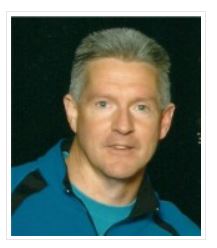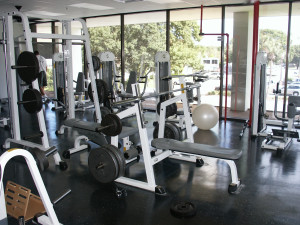I've known personal trainer, Paul Thomas for several years. He, like myself, is certified by the NSCA. During this past NSCA rectification period, he expressed his frustrations with the NSCA and decided that after almost 20 years he is letting his CSCS certification expire and is leaving the organization. He is not the only person to say this to me, which made me want to interview him about why he was making this decision. My hope is that those in charge at the NSCA read this and take his words to heart. Ive previously written about my own problems with the NSCA here so see that for more insights.
JC. What is your education?
PT. I have a B.S., Exercise Science from West Chester University, West Chester PA and an M.Ed. in Exercise Physiology from Temple University.
JC. What do you do?
PT. I provide on-site (home or office) personal training and fitness consulting services. I work primarily with older adults in the suburban Philadelphia, Pennsylvania area. The name of my company is Fitpro, Inc. which I started back in 1991. In addition to working with my private training clients, I also  author a fitness blog, HomeWorkOutGuy.com, where I offer free workout and nutrition advice.
author a fitness blog, HomeWorkOutGuy.com, where I offer free workout and nutrition advice.
JC. What NSCA certs do you have?
PT. I am a Certified Strength and Conditioning Specialist (CSCS) and have held that certification since 1996 – almost 19 years.
JC. What made you decide to give up your CSCS cer and leave the NSCA?
PT. My reasons for not renewing my NSCA certification are mainly economical. The cost of obtaining CEU’s in both time and money went up considerably this current renewal period. Personally, I always relied on submitting quizzes for the bulk of my CEU’s – $20 each to obtain 0.5 credits for each quiz. I would choose quiz topics that were most relevant to the needs of my clientele (older adults), which were far and few, but it really didn’t matter to me. I could always find a topic that would interest me.
Now, after almost 20 years, someone at the NSCA decided that quizzes should be worth 0.2 credits each instead of 0.5 credits each. That has the cost of quizzes going up by 250%, not to mention the extra time it would take to complete 10 – 12 additional quizzes to earn the same amount of credits you would’ve in previous years. This translates into hundreds of extra dollars and many additional hours needed to renew your certification – not a wise decision (in my opinion) by the NSCA, especially in this economy.
That, coupled with the fact that members are now being pushed to receive digital versions of NSCA publications (which I never read anymore for that reason) and still pay the same membership fee, is why I decided to part ways with the NSCA.
JC. Have you contacted the NSCA about how expensive it is to maintain the cert?
PT. No, I haven’t.
JC. Do you feel the NSCA helps you in your business?
PT. Other than having a good liability insurance policy through them, no, I don’t. My clientele consists mostly of older adults, ranging in age from 44 – 82 years, with the average age being about 60 years.
My typical client doesn’t know a CSCS from a CPA.
By no means am I suggesting that this is the fault of the NSCA – it’s simply the reality of who my clients are. However, if I was working with athletes at a high school or university, I’m sure my answer would be very different and I probably wouldn’t be doing this interview, but that’s not the case with me.
JC. Do you have any certs from other organizations?
PT. No, I don’t.
JC. Do you have any thoughts on the other organizations?
PT. As of now, I really don’t. I’ll certainly be doing my research on that very soon. I want to join an organization that provides more relevant information to the population I work with, which is pretty much the over-55 crowd.
JC. What do you like about the NSCA?
PT. What initially drew me to the NSCA was the fact that you needed a college degree to sit for the CSCS exam. That seemed (at least to me) to separate them from all the other certifying organizations, with the exception of maybe the ACSM and their Director certification.
For more on this see my post NSCA vs NASM for more info.
I also enjoyed reading their publications, even though I wasn’t working with athletes. They also provide a very comprehensive professional liability insurance policy, which I’ve purchased over the years and has served me well.
JC. What don’t you like about the NSCA?
PT. Other than the reasons why I’m choosing to leave – nothing. I have the utmost respect for the NSCA. But I have to admit; those reasons do have me a little soured on them these days.
JC. Do you feel the NSCA has lost its way?
PT. No, I don’t. When it comes to certifying fitness organizations, particularly regarding the training of athletes, I believe the NSCA will always lead the pack. However, they might have lost their way a little bit recently when it comes to member relations – I think I’ll just leave it at that.
JC. How can people, learn more or contact you personally?
PT. They can reach me at either of my websites: HomeWorkOutGuy.com or FitProTrainers.com

I just posted a comment on a similar thread on another site. I feel exactly the same way and it looks like the 4 years I have held the CSCS credential were enough.
Hi Ben, thanks for sharing. Was there one thing that stood out in your decision to give up your CSCS credential?
Hi Joe, thanks for getting back. I actually wrestled with the decision and Google to see if others had similar feelings, sure enough your blog as well as another immediately showed up after the NSCA links.
I posted a response to another blog here by Elliot White. http://www.truefn.com/blog/2017/9/4/why-i-let-my-cscs-expire
I had trouble pasting the link since I am using my phone, but there you will see a thoughtful response as to (our) general feelings about where this opinion has emerged from.
Essentially, the NSCA is starting to look a bit like a weight training country club (I say this reluctantly because it’s not what I want to see in them). I have already proved through passing the exam and also recertifying once, now I am required to reproved myself while I see on their site all of these new forms of certification that are taking away from the CSCS.
So now I would be agreeing to the validity of these certificates as if they hold a candle to what ought to be overarching– it looks like it’s just a way to increase the quantity of trainers while forgoing quality– and I’m paying for it.
So it’s hard because I really don’t want to believe it’s true but my gut is saying this classifies as selling out, maybe to be more like a…. Crossfit? And nothing against Crossfit, but despite their popularity CSCS hands down should trump this classification and like you said, no one has ever heard of the NSCA or CSCS in the general population.
So I could always retake the exam in the future, but if I have to make a name for myself I have proved that I am of caliber, and right now the money and time can go towards more pertinent assets. So, the truth is that the standard is lowering, I still love them but this is hurting the specialization more than it is helping.
My customers couldn’t care less and the insurance doesn’t work in my own gym (laughably other gyms tend to actually resent me for fear of client mining). I can continue, and I mean all of this with respect, but it is rapidly passing me by.
Ben, thanks for saying that. It was interesting how you equated NSCA with a weight lifting country club. I had the pleasure of recently attending their mid atlantic conference. on the first day there was some powelifting guy who I think was lifting a car. I thought it was odd but didn’t give it much thought until you brought this up. I didn’t attend that part; I preferred the seminar on the business of personal training.
I’ve been a CSCS and NSCA-CPT since the mid 1990s. One thing I did mention to a friend of mine is that I thought I was one of the oldest guys at the conf.Maybe its passing me by too? Take that for what it is. just an observation.